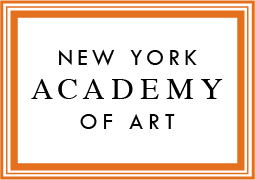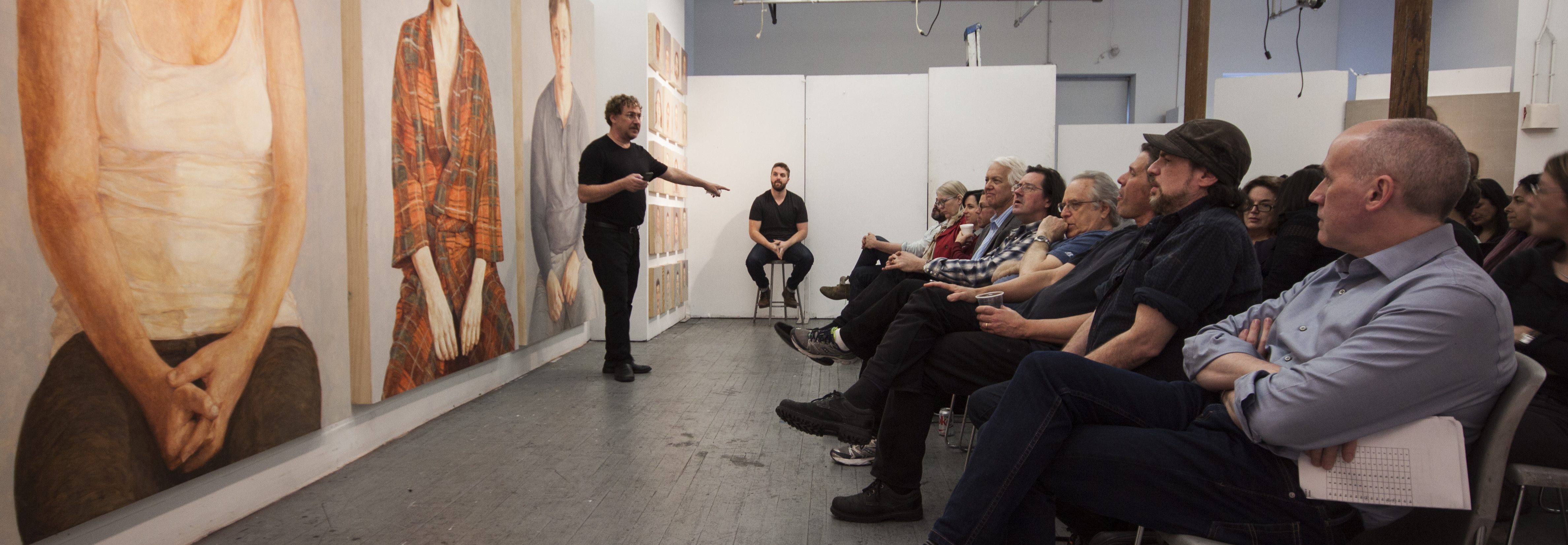The New York Academy of Art is a graduate school of fine art focused on progressive representational and figurative art. The MFA at the Academy requires students to learn traditional methods and techniques in the service of creating vital contemporary art. Potential Academy students align with the Academy’s mission through observational skills and a balance of conceptual awareness and technical proficiency.
Sign up for a free portfolio review
The MFA is a specialized terminal degree at the graduate level for students seeking advanced education in fine arts. It is a concentrated two-year, 60-credit program that requires 85% of coursework to be completed in studio art. Students specialize in one of three concentrations, Drawing , Painting or Sculpture. Applicants must declare their intended concentration. Students may also elect to complete a track in Anatomy or Printmaking. Tracks supplement the concentrations with focused attention on additional areas of study.
Central to the curriculum is the study of figurative and representational art and the reinterpretation of traditional methods for the contemporary artist. An MFA student is expected to achieve mastery of traditional techniques and practices as well as successful engagement with current art methodologies and critical discourse. The achievement of these goals allows students to develop an authentic visual language as a means to communicate their personal vision, resulting in technically and formally sophisticated work that is engaged with the contemporary art world.
Master of Fine Arts Core Outcomes
- proficient working knowledge of anatomy
- proficient knowledge of composition and design
- proficient in perceptual and conceptual approaches to drawing of the figure
- advanced ability to interpret and translate human form in space
- proficient knowledge of traditional and contemporary methods and techniques
- understanding of the history of visual art and technique
- ability to reinterpret traditional studio methods for the contemporary artist
- understanding of art theory
- ability to engage in critical discourse
- understanding of how and why the human figure serves as a vehicle for meaning
- creativity and independent thinking
- written and oral communication skills
- independent research skills
- exposure to professional aspects of a career in the arts

